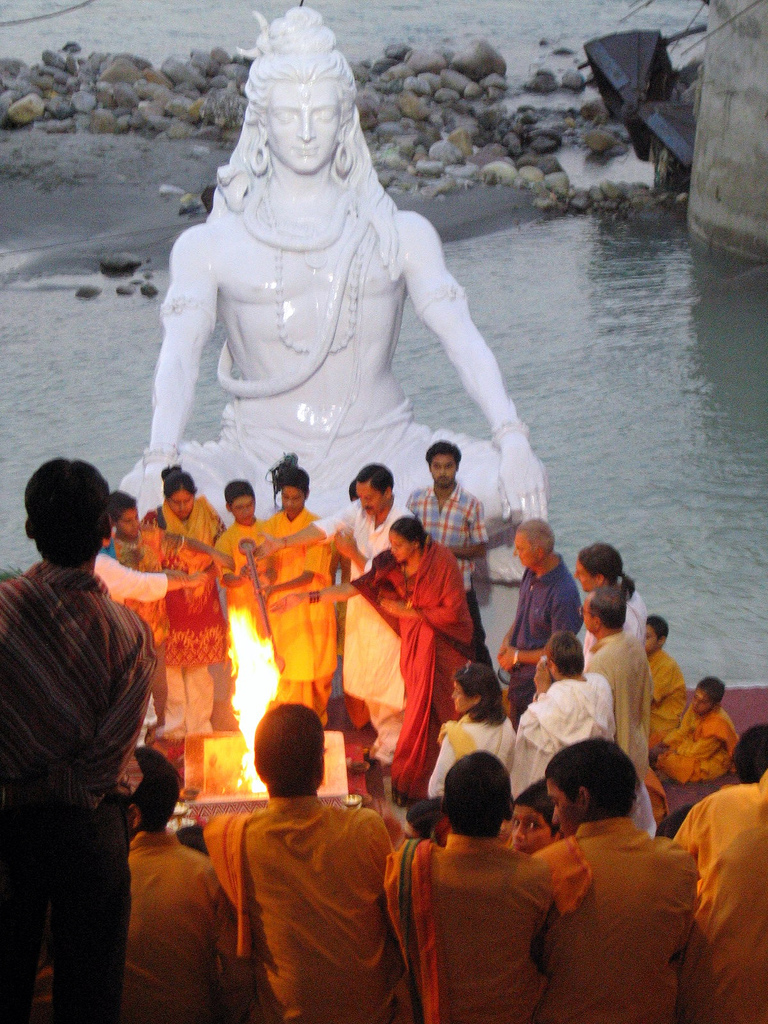Arthur Versluis is a scholar
of religion. In this early work, “Song of the Cosmos”, Versluis comes clean
about his own religious views. They turn out to be a version of Traditionalism.
The book is dedicated to René Guénon, Titus Burckhardt and Frithjof Schuon.
Guénon and Schuon are prominently referenced, and so are Henry Corbin and
Martin Lings. The book itself focuses on something Versluis calls traditional
cosmology. He draws heavily on Hindu and Buddhist sources, complemented with
Hermetism and the Kabbalah. The author believes in a “cosmologia perennis”,
underlying the different religious traditions. Unsurprisingly, the Biblical
religions turn out to be difficult to assimilate, with the author stating that
the Bible only giving us part of the picture. Origen and Meister Eckhart are
Versluis' favourite Christian thinkers.
Most of the contents will be familiar to students of Hinduism and Buddhism. God is completely ineffable, all creation entails a “fall”, and the destiny of man is to re-ascend to the divine. The cosmos is hierarchic, with several different paradises at the summit, the material world in the middle, and the infernal realms further below. There are seven astral realms in between the paradises and the material world, corresponding to the seven planets of traditional astrology. Nature isn't the result of evolution (a scientific theory Versluis hotly denies), but reflects heavenly archetypes and hence the divine.
Paradise and Hell are temporary stations, all creation is cyclical, and at the end of a cycle, creation is dissolved and reabsorbed into the divine. The dissolution corresponds to the “apocalypse”, and the absorption to “apocatastasis”. Then, a new cycle of creation and fall begins. Ultimate salvation is only possible by completely breaking free of creation. The author has problems creating a neat synthesis of the various strands of Hinduism and Buddhism. At one point, he claims that an advanced Buddha can penetrate all of creation, redeeming and perfecting it (rather than dissolve it, presumably). At another point, he expresses some sympathy with Pure Land Buddhism, with its notion of a permanent paradise. The author believes in metempsychosis (a position he identifies with Buddhism) rather than reincarnation, and runs into the same problem as the Buddhists: how could the Buddha remember his previous lives, if there is no permanent soul which reincarnates?
The author spends considerable time discussing various spiritual and mythological beings: devas, asuras, demons, fairies, giants, etc. Man plays a central role in the drama of creation and redemption. Being poised in the middle of the World Axis, he has unique access to divine knowledge, something denied to animals, fairies and even devas (demigods). All the world rises and falls with Man, making his ascent to the divine necessary for the salvation of other creatures. The author also believes in the existence of primordial civilizations on Earth, unknown to modern science, including a culture penetrated by the fallen angels and eventually destroyed by a deluge. Atlantis and Lemuria are never explicitly mentioned, but it shouldn't be difficult to combine these modern myths with Versluis' traditional cosmology.
I happen to disagree with large parts of the “cosmologia perennis”, and the book gets tedious to read after a while. However, it's less dense that Guénon's writings. Eventually, I give it three stars.

No comments:
Post a Comment